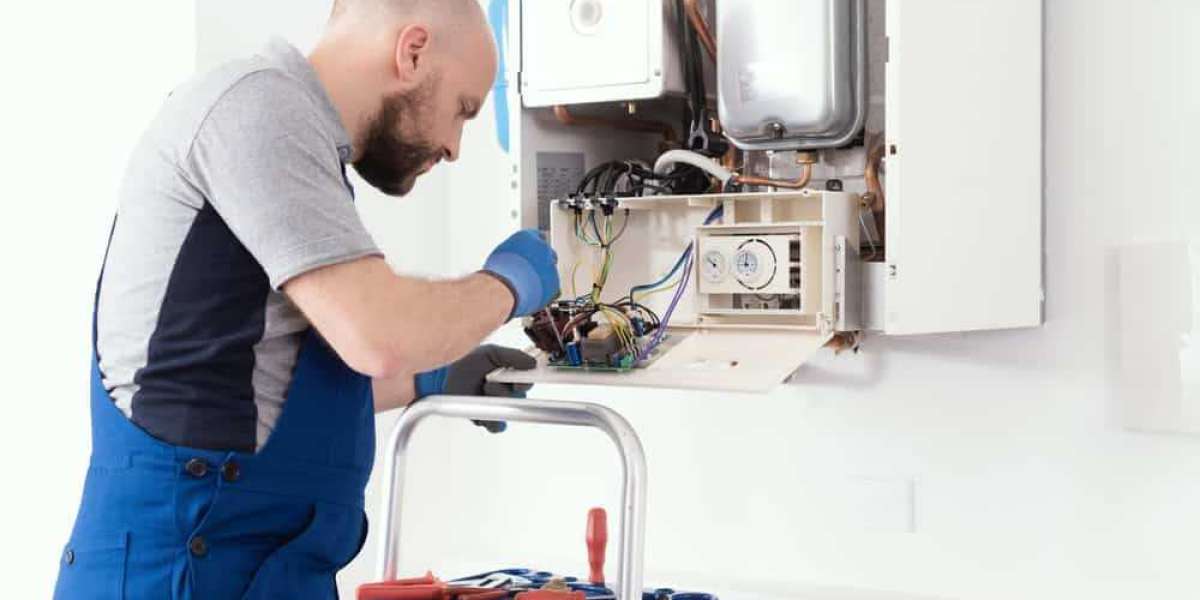Choosing the right boiler size for your home is crucial to ensuring energy efficiency, reducing utility bills, and maintaining a comfortable indoor temperature. If you select a boiler that is too small, it may struggle to provide enough heating and hot water. On the other hand, an oversized boiler can lead to unnecessary energy consumption and higher costs. This guide will help you determine the ideal boiler size based on your home’s heating and hot water needs.
Understanding Boiler Size
Boiler size is measured in kilowatts (kW), which indicates its power output. The right size depends on factors such as the number of radiators, the size of your home, and your hot water usage. Generally, the higher the kW rating, the more powerful the boiler.
Factors That Determine the Right Boiler Size
To choose the right boiler size, consider the following factors:
Number of Radiators
The number of radiators in your home plays a significant role in determining the boiler size. A larger home with more radiators requires a boiler with a higher output.
6–10 radiators: A boiler with 24–27 kW output is usually sufficient.
10–15 radiators: A 28–34 kW boiler is recommended.
15+ radiators: A boiler with an output of 35 kW or more may be necessary.
Property Size
The size of your home impacts the amount of heat required. Larger homes with multiple floors and more rooms will need a higher kW boiler to maintain consistent heating.
Flats and small homes (1–2 bedrooms): 24–27 kW
Medium-sized homes (3–4 bedrooms): 28–34 kW
Large homes (5+ bedrooms): 35+ kW
Hot Water Demand
If your household frequently uses hot water, a higher-capacity boiler may be needed. Consider the number of bathrooms and how often multiple taps are used at the same time.
1 bathroom: A combi boiler with 24–27 kW should suffice.
2+ bathrooms: A system or regular boiler with 28–35 kW is advisable.
Boiler Type
There are three main types of boilers, and each has different sizing requirements:
Combi Boilers: Best for small to medium homes with one or two bathrooms.
System Boilers: Suitable for medium to large homes with higher hot water demand.
Regular Boilers: Ideal for large homes with multiple bathrooms and high water usage.
Choosing the Right Boiler Type and Size
Combi Boiler Size Guide
Combi boilers provide heating and hot water on demand. They are compact and do not require a separate hot water cylinder, making them ideal for smaller homes.
24–27 kW: Suitable for flats and small houses with up to 10 radiators.
28–34 kW: Best for medium-sized homes with 10–15 radiators and 1-2 bathrooms.
35–42 kW: Needed for larger homes with 15+ radiators and multiple bathrooms.
System Boiler Size Guide
System boilers work with a hot water cylinder and are ideal for homes with higher hot water demand.
12–24 kW: Suitable for small homes with low heating needs.
24–30 kW: Best for medium-sized homes with moderate heating and hot water use.
30+ kW: Required for large homes with multiple bathrooms.
Regular Boiler Size Guide
Regular boilers (also known as conventional boilers) require both a hot water cylinder and a cold water storage tank. They are best for larger homes.
12–24 kW: Works for small homes with traditional heating systems.
24–30 kW: Ideal for medium-sized homes with 2-3 bathrooms.
30+ kW: Needed for large properties with extensive hot water requirements.
Energy Efficiency Considerations
Selecting the right boiler size is not just about heating capacity; energy efficiency also matters. A boiler that is too large will cycle on and off frequently, reducing efficiency and increasing wear and tear. Look for boilers with high energy efficiency ratings (A-rated models) to ensure optimal performance.
Consulting a Professional
While this guide provides general recommendations, consulting a professional heating engineer is the best way to determine the ideal boiler size for your home. A qualified expert can assess your home’s heating needs, insulation levels, and other factors to recommend the most efficient boiler.
Conclusion
Choosing the right boiler size is essential for maintaining a comfortable and energy-efficient home. By considering factors such as the number of radiators, property size, hot water demand, and boiler type, you can make an informed decision. Investing in a properly sized boiler ensures lower energy bills, reduced carbon footprint, and long-term reliability. If you’re unsure, seek professional advice to ensure the best fit for your home’s heating needs.








